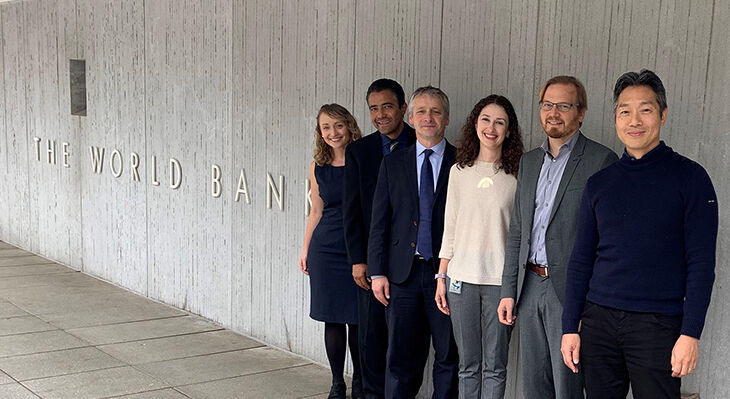Cooperation with US-American partner institution
The American Association of Community Colleges (AACC) and the BIBB have already been successfully working together on the basis of a co-operation agreement since 2003. The co-operation activities mainly focus on information exchange between the two partners and their mutual support in issues pertaining to vocational education and training.
The American Association of Community Colleges (AACC) is a non-profit organisation. It represents close to 1,200 educational institutions and about one million students as well as increasing numbers of foreign member institutions.
The BIBB has been maintaining a long-standing co-operation with the American Association of Community Colleges (AACC), which, since 2003, has been based on a co-operation agreement. In the context of this co-operation as well as of new activities such as the "Skills Initiative" organised by the German Embassy in Washington, D.C., joint specialist events, seminars and information visits have been organised in the past both in Germany and in the United States.
In the co-operation agreement signed in June 2003, both partners express their intention to support each other in the following fields of activity:
- analysis/research, development and implementation of innovative concepts in the field of vocational education and training;
- development of vocational education and training standards;
- development of basic structures, statutory provisions and organisational context for vocational education and training programmes in Germany and in the United States;
- co-operation with other countries and multilateral organisations in the reorganisation and modernisation of vocational education and training at a national level.
The co-operation agreements provides for:
- mutual exchange of information
- on priorities and trends in the field of vocational education and training;
- on the BIBB's and the AACC's research topics and results;
- on the development of new occupational profiles;
- mutual support and exchange with respect to conferences;
- mutual exchange of information material, publications and teaching material;
- mutual exchange of experts regarding topical issues in the field of vocational education and training;
- mutual support in the publication of articles on the topic of vocational education and training;
- joint involvement in international activities, such as the acquisition of projects;
- comparison and definition of key data regarding qualifications, curricula, standards and educational models and procedures.
